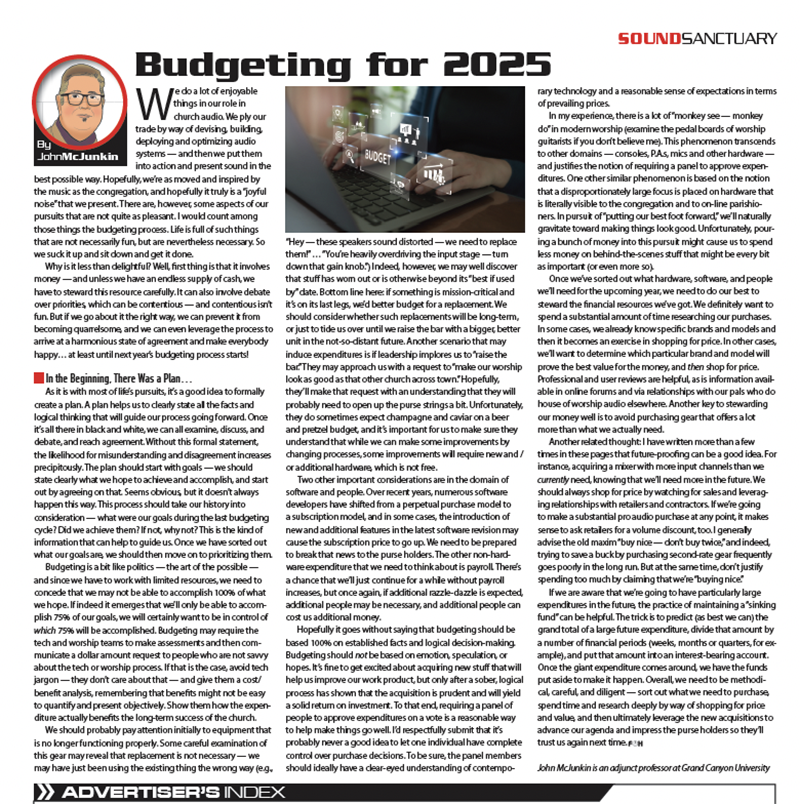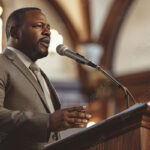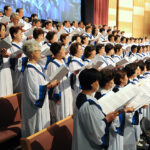The single most difficult part of being a church technical director is recruiting, training, and retaining volunteers. The technical part is easy, and if I could hire paid people to fill all of the different roles and responsibilities, the job would be a breeze. The church environment has changed dramatically over the past 10 years, and paid technical staff is more the rule than the exception. Nevertheless, from the largest church to the smallest church, volunteers are still a big part of what we do.
My full time job is as a university audio educator. The church gig is my second, part-time job. I’ve also done many on-site audio training seminars at churches and other production facilities across the country. As a result, I have a somewhat unique take on how to teach and train volunteers. The audio educator part of me wants to train volunteers from the ground up, teaching them the fundamentals of audio and live production at its most basic level, and then working from there. Unfortunately, the nature of church volunteers is that they simply don’t have the time to devote to that level of training, and I often must focus more on the mechanics of what I need them to do on a day-to-day basis.
Sometimes we get lucky, and we find volunteers who have the basic knowledge, or better yet, we get volunteers who are students studying theater or some other live production discipline. Other times we get volunteers who have very little background with anything related to live production, and they just have a passion for helping set up a worship service every week. Each one of these volunteers is valuable in their own way, and — if we can identify their strengths and weaknesses — they can be a valuable part of our team, and it can be an enjoyable and fulfilling experience for them.
Identify Their Preferences
My church has both traditional and contemporary worship services each Sunday. One of the first questions I ask new volunteers is their worship preference — traditional or contemporary. What time do they prefer to come to worship? Do you prefer to volunteer for one particular service and worship with your family in another? I rarely stray from their preferences, because that’s where they feel most comfortable. There are always the rare volunteers who are willing to work during any service type or time, but most feel comfortable in their own preferred service.
Use Technology to Your Advantage
Over the past decade, there are two huge changes in houses of worship that are very valuable training tools — digital consoles and multitrack recording. It isn’t that these things didn’t exist before, but the large majority of churches, even the small ones, can now find a digital console that fits their budget. And these days, a multitrack recording system is almost assumed to go along with a digital board. Why not? Digital consoles make multitrack recording both easy and affordable. With multitrack recording software like Reaper and Waves TracksLive being free (or almost free), multitrack recording and playback are easily within reach of most churches.
When training audio operators, look no further than using multitrack recordings of your services as your number one training tool. Not only is it the best way to simulate your services (in a consequence-free environment), but it also can be fun for you and the trainees as well. When using multitrack playback for training, focus on two main things: the flow of the service, and how your operator transitions from one part of the service to the next. When the band concludes a song and you transition to the sermon, what does the operator need to do? Mute groups? VCAs? Individual channel mutes? Snapshots? Understanding the mechanics and flow of mixing a service will make volunteers feel more comfortable, and ultimately allow them to move on to more advanced mixing skills.
Hitting Cues
This is a pet peeve of mine. I’ve had lots of engineers over the years (both paid and unpaid) who were good music mixers, but they couldn’t hit cues to save their life. Church mixing is as much about hitting cues as it is about having a high fidelity music mix. If you unmute the pastor’s microphone late every Sunday, I really don’t care how good your kick drum sounds! I call it “mute management,” and a lot of people who haven’t mixed in churches or theater don’t seem to understand its importance.
Develop Good Habits
When training volunteers, it’s easy to focus on things that aren’t critical, like plug-ins and effects. Unless you have a very advanced volunteer, focus on developing good habits. I always tell my students and volunteers that mixing is all about having priorities. Priority number one is, of course, gain structure. Proper gain structure is prerequisite to everything else we do on an audio console, and it’s especially critical if you’re mixing monitors from the FOH position. I also stress things like muting unused mics and muting effects when people are speaking. Success comes from keeping it simple to start and focusing on things that will make a volunteer’s job easier and more enjoyable.
Vince Lepore is the technical director at St. Luke’s United Methodist Church in Orlando and teaches live production at Full Sail University.



